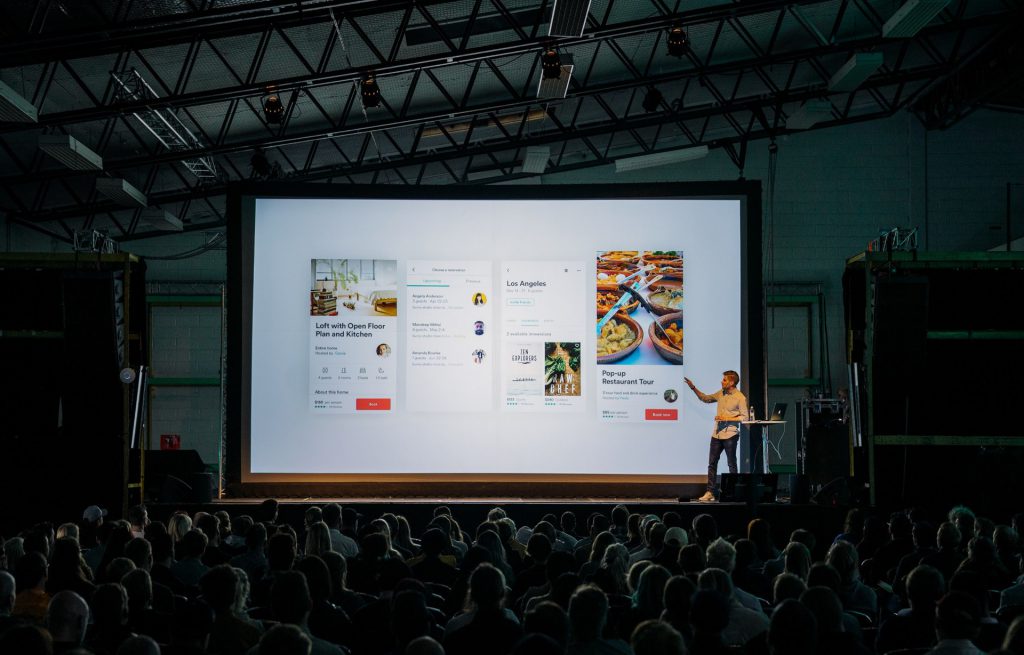Hybrid events and the future of the event industry
Nov. 12, 2020
As the pandemic continues, event planning professionals are looking at what the future of the event industry might hold once larger in-person gatherings are permitted again. The answer seems to point overwhelmingly in the direction of hybrid events
Hybrid events have been around for much longer than COVID-19. They embrace digital technology to complement the in-person attendance experience while making the event accessible virtual attendees. If you’ve ever been to an event where the keynote speaker presented via video-conference, then you’ve been to an event with hybrid components.
These events involve more planning and day-of work that a completely in-person event, but this extra effort can be so worthwhile. Here’s how hybrid components can enhance the event experience for your attendees and make your life easier when it comes time to execute.
1. Broadening your audience
In-person events are a fantastic way for attendees to network and interact with your speakers, sponsors, and vendors, but a physical venue means physical space limitations, and not every potential attendee has the time or resources to travel to your event. Hosting your event in a hybrid style helps to remove these barriers. By live-streaming your presentations and sharing resources on online, you’re welcoming potential attendees from all over the country, if not the world. More guests mean more exposure to your messaging or product, and potentially more revenue if you are hosting a ticketed event.

2. Keeping your content top of mind
You may have heard the term “asynchronous delivery” thrown around a lot recently, especially if you work in the education field. Simply put, asynchronous delivery makes content available on-demand so that event attendees can consume it at their own pace. While there may be perks to catching the keynote speaker live, like participating in a question and answer period, hosting a recording of the presentation on your event website or app means that attendees can view it hours or days after the fact. This keeps your messaging available to those who could not attend at the time, and also can give you an easy way to see how popular your speakers were. If certain videos keep getting viewed after the event concludes, you know these topics were useful or engaging for your audience.
3. Creating a hub of information
Event planners know how difficult it can be to circulate information. One option many event professionals used even before the pandemic was having an event app or website. They can provide directions to lecture halls and schedules for speakers, host links and videos of your presentations, and push announcement notifications to your attendees whether they attend virtually or in person. It can also be a place where attendees share their information and network with each other – almost like a social media platform specifically for your event. All of these functions, while useful individually, add up to one thing: an information hub. Every aspect of your event captured in one spot, at the tips of your attendees’ fingers. This makes it easy to communicate with your guests and for you to record and archive everything that was done at and for your event.

4. Making pivoting easy
If you’re an event professional, you have heard the word “pivot” used in relation to event planning a lot this year. In March when the world seemed to shut down almost all at once, everyone that could was scrambling to turn their upcoming event into something that could be consumed virtually. This is where hybrid events can be a life saver. If you are incorporating hybrid aspects into your event as part of your regular planning, there is so much less to pivot in the face of unforeseen circumstances. If you were already planning on recording and streaming your keynote speaker, then you’ll already have the technology booked and the microsite built if there’s a snow storm and your attendees can’t travel. If you already had your sponsor and vendor information on your app, then you have the option of turning your tradeshow into an online marketplace if your venue falls through at the last minute. Hybrid events can help us be more adaptable and responsive in even the most surprising situations.
This isn’t the last time we’ll be writing about hybrid events. The creativity and resourcefulness shown by the event industry since March has been exciting, and we believe the best is yet to come. We hope to share lots of tips and tricks over the coming months to help you make the most of your hybrid event!
In the meantime, need any help with your own virtual meeting? Check out our meeting packages and get in touch today!